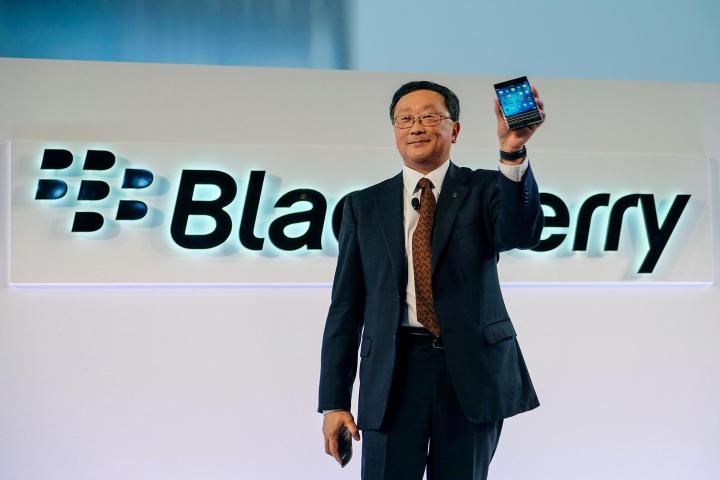
In a post on LinkedIn titled “The Keys to Executing a Turnaround the Right Way,” Chen talked about his commitment to completing a full-fledged course correction for the smartphone company. Though he noted that most CEOs would have no interest in being presented with a company in need of a turnaround, he is “in it for the long haul.”
Related: BlackBerry’s secret weapon isn’t the Passport, it’s a new CEO who can laugh
Chen notes that BlackBerry was near dire straights when he took over, brought on board after a $1 billion cash injection from Fairfax Financial in November of 2013. Since stating, “We are committed to reclaiming our success,” Chen has started to make progress on what is sure to be a long road to saving the BlackBerry brand from the clutches of obscurity.
“When an organization is in a funk, a lot of people understand the problems. Not too many people understand the way out of the problems. When you only talk about the problems, you drag everyone down. Energy dissipates; hopelessness reigns,” Chen wrote, and it’s safe to say that the culture surrounding BlackBerry likely reflected this. At the start of 2013, there was a glimmer of hope for BlackBerry as it announced a new line of touchscreen smartphones. By the summer, the gray skies returned as sales fell well shy of expectations.
Chen’s key to a turnaround focuses on positivity and finding longterm solutions rather than just identifying immediate problems. “People have asked me, ‘Why do you want to do turnarounds?’ I think it’s similar to working an emergency room. When a patient comes in, you don’t ask, ‘Why is that person hurt?’ You help him or her get better. That is the culture that’s needed: one that focuses on fixing things and finding solutions, not on the obstacles before you,” Chen explained.
Despite hoping to make long term fixes, Chen also acknowledged the need for immediate action. “If your front porch is on fire, you wouldn’t stop to calculate how long it would take for your house to burn down. You just go stop the fire. In BlackBerry’s case, we cut costs dramatically and doubled down on reducing losses and growing profits. We still have a few water buckets on hand. But no one is cooking our funeral dinner on the flames, because we took action,” he wrote.
The post is full of somewhat empty adages and boiler plate positivity that one would expect from an executive trying to make his company appear more appealing. But it’s also a signal to investors and interested consumers that there is committed leadership at the company. Chen’s post should provide confidence for those watching BlackBerry with a cautious eye.
In the company’s most recent reporting, BlackBerry beat the Wall Street estimates by a long shot. The problem, though, is the company still posted a $207 million loss for the quarter and fell short on revenue estimates while shipping just 2.1 million new smartphones.
The well-received BlackBerry Passport may be the key to increasing those sales figures. Even as John Chen is saying the right things, there’s still a long way to go to make BlackBerry a major player in a mobile market more competitive than ever.


